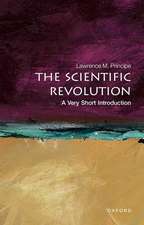A History of “Relevance” in Psychology: Palgrave Studies in the Theory and History of Psychology
Autor Wahbie Longen Limba Engleză Paperback – 13 noi 2020
The chapters go on to consider the ‘relevance’ debate within South African psychology, by critically analysing discourse of forty-five presidential, keynote and opening addresses delivered at annual national psychology congresses between 1950 and 2011, and observes how appeals for ‘relevance’ were advanced by reactionary, progressive and radical psychologists alike.
The book presents, moreover, the provocative thesis that the revolutionary quest for ‘social relevance’ that began in the 1960s has been supplanted by an ethic of ‘marketrelevance’ that threatens to isolate the discipline still further from the anxieties of broader society. With powerful interest groups continuing to co-opt psychologists without relent, this is a development that only psychologists of conscience can arrest.
| Toate formatele și edițiile | Preț | Express |
|---|---|---|
| Paperback (1) | 382.57 lei 6-8 săpt. | |
| Palgrave Macmillan UK – 13 noi 2020 | 382.57 lei 6-8 săpt. | |
| Hardback (1) | 389.31 lei 6-8 săpt. | |
| Palgrave Macmillan UK – 4 iul 2016 | 389.31 lei 6-8 săpt. |
Din seria Palgrave Studies in the Theory and History of Psychology
- 18%
 Preț: 721.63 lei
Preț: 721.63 lei -
 Preț: 229.18 lei
Preț: 229.18 lei -
 Preț: 197.61 lei
Preț: 197.61 lei -
 Preț: 396.24 lei
Preț: 396.24 lei - 15%
 Preț: 637.13 lei
Preț: 637.13 lei - 5%
 Preț: 843.38 lei
Preț: 843.38 lei - 15%
 Preț: 470.38 lei
Preț: 470.38 lei - 15%
 Preț: 469.91 lei
Preț: 469.91 lei - 9%
 Preț: 693.01 lei
Preț: 693.01 lei -
 Preț: 485.61 lei
Preț: 485.61 lei - 15%
 Preț: 531.41 lei
Preț: 531.41 lei - 18%
 Preț: 949.73 lei
Preț: 949.73 lei -
 Preț: 486.80 lei
Preț: 486.80 lei - 9%
 Preț: 805.28 lei
Preț: 805.28 lei - 9%
 Preț: 806.39 lei
Preț: 806.39 lei - 18%
 Preț: 722.75 lei
Preț: 722.75 lei - 15%
 Preț: 578.55 lei
Preț: 578.55 lei - 18%
 Preț: 782.24 lei
Preț: 782.24 lei - 18%
 Preț: 787.91 lei
Preț: 787.91 lei - 18%
 Preț: 891.96 lei
Preț: 891.96 lei
Preț: 382.57 lei
Nou
Puncte Express: 574
Preț estimativ în valută:
73.21€ • 76.59$ • 60.81£
73.21€ • 76.59$ • 60.81£
Carte tipărită la comandă
Livrare economică 03-17 aprilie
Preluare comenzi: 021 569.72.76
Specificații
ISBN-13: 9781349692835
ISBN-10: 1349692832
Pagini: 222
Ilustrații: XII, 222 p. 3 illus., 1 illus. in color.
Dimensiuni: 148 x 210 mm
Greutate: 0.29 kg
Ediția:1st ed. 2016
Editura: Palgrave Macmillan UK
Colecția Palgrave Macmillan
Seria Palgrave Studies in the Theory and History of Psychology
Locul publicării:London, United Kingdom
ISBN-10: 1349692832
Pagini: 222
Ilustrații: XII, 222 p. 3 illus., 1 illus. in color.
Dimensiuni: 148 x 210 mm
Greutate: 0.29 kg
Ediția:1st ed. 2016
Editura: Palgrave Macmillan UK
Colecția Palgrave Macmillan
Seria Palgrave Studies in the Theory and History of Psychology
Locul publicării:London, United Kingdom
Cuprins
Chapter 1. Introduction.- Chapter 2. A History of 'Relevance'.- Chapter 3. Theorizing 'Relevance'.- Chapter 4. Themes in South African Psychology (1948-2011).- Chapter 5. 'Relevance' and the SAPA-PIRSA Split.- Chapter 6. Science and Society in the Time of SAPA (1948-1961).- Chapter 7. The Rise and Fall of 'Ethnic-National Relevance (1963-1977).- Chapter 8. The Quest for 'Social Relevance' (1978-1993).- Chapter 9. 'Relevance' in the Post-Apartheid Era (1994-2011).- Chapter 10. Conclusion.
Recenzii
“Long’s work calls for a critical reflection and historical analysis of our psychological concepts and ways of framing the value of psychology more generally. … The reader is rewarded with a clear demonstration of the potential insights yielded from critical discursive analysis and a convincing call to explore the larger historical and cultural context that shapes psychological theories and practice.” (Brian W. Becker and Heather Macdonald, PsycCRITIQUES, Vol. 62 (6), February, 2017)
Notă biografică
Wahbie Long is Senior Lecturer in the Department of Psychology at the University of Cape Town, South Africa, and a Mandela Mellon Fellow of the Hutchins Center at Harvard University, USA.
Textul de pe ultima copertă
Palgrave Studies in the Theory and History of Psychology
Series Editor: Jack Martin, Burnaby Mouthain Endowed Professor of Psychology, Simon Fraser University, Canada
This book represents the first attempt to historicise and theorise appeals for ‘relevance’ in psychology. It argues that the persistence of questions about the ‘relevance’ of psychology derives from the discipline’s terminal inability to define its subject matter, its reliance on a socially disinterested science to underwrite its knowledge claims, and its consequent failure to address itself to the needs of a rapidly changing world.
The chapters go on to consider the ‘relevance’ debate within South African psychology, by critically analysing discourse of forty-five presidential, keynote and opening addresses delivered at annual national psychology congresses between 1950 and 2011, and observes how appeals for ‘relevance’ were advanced by reactionary, progressive and radical psychologists alike.
The book presents, moreover, the provocative thesis that the revolutionary quest for ‘social relevance’ that began in the 1960s has been supplanted by an ethic of ‘market relevance’ that threatens to isolate the discipline still further from the anxieties of broader society. With powerful interest groups continuing to co-opt psychologists without relent, this is a development that only psychologists of conscience can arrest.
Series Editor: Jack Martin, Burnaby Mouthain Endowed Professor of Psychology, Simon Fraser University, Canada
This book represents the first attempt to historicise and theorise appeals for ‘relevance’ in psychology. It argues that the persistence of questions about the ‘relevance’ of psychology derives from the discipline’s terminal inability to define its subject matter, its reliance on a socially disinterested science to underwrite its knowledge claims, and its consequent failure to address itself to the needs of a rapidly changing world.
The chapters go on to consider the ‘relevance’ debate within South African psychology, by critically analysing discourse of forty-five presidential, keynote and opening addresses delivered at annual national psychology congresses between 1950 and 2011, and observes how appeals for ‘relevance’ were advanced by reactionary, progressive and radical psychologists alike.
The book presents, moreover, the provocative thesis that the revolutionary quest for ‘social relevance’ that began in the 1960s has been supplanted by an ethic of ‘market relevance’ that threatens to isolate the discipline still further from the anxieties of broader society. With powerful interest groups continuing to co-opt psychologists without relent, this is a development that only psychologists of conscience can arrest.















